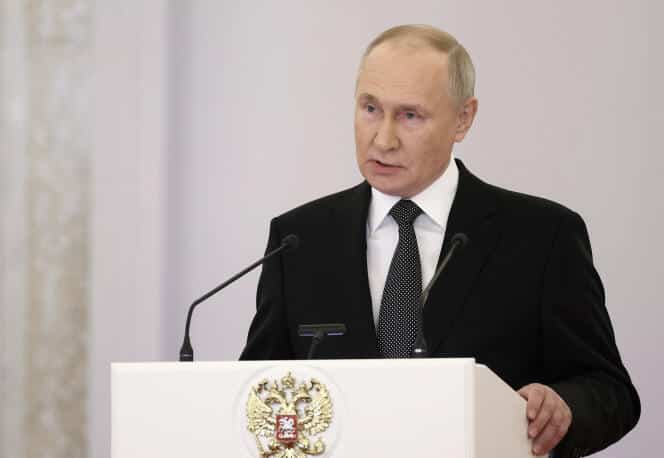In Russia’s recent presidential election, held on Sunday, President Vladimir Putin achieved a remarkable victory, securing an overwhelming 88% of the vote, according to initial results and exit polls. This landslide victory further solidifies Putin’s already firm grip on power within the country’s political landscape.
Despite some symbolic protests staged by thousands of opponents at polling stations, Putin’s dominance in the election remained unchallenged. His victory signifies widespread support among the Russian electorate, reaffirming his status as the country’s most influential political figure.
Putin’s victory in this election sets the stage for him to potentially extend his tenure by another six-year term. If he serves out this term, he would surpass Josef Stalin to become Russia’s longest-serving leader in over two centuries. This underscores the significant impact Putin has had on Russian politics and governance since assuming office in 1999.
Exit polls conducted by prominent research institutions such as FOM and the Russian Public Opinion Research Centre (VCIOM) consistently showed Putin’s overwhelming support among voters. FOM’s exit poll indicated Putin’s approval rating at 87.8%, the highest ever recorded in Russia’s post-Soviet history. Similarly, VCIOM’s poll put his support at 87%. These numbers reflect the widespread backing Putin enjoys across various segments of Russian society.
The first official results of the election aligned closely with these exit poll predictions, further affirming Putin’s resounding victory. This outcome highlights the effectiveness of Putin’s political strategy and the enduring popularity he commands among Russian voters.
Putin’s triumph in the presidential election underscores his continued dominance in Russian politics and solidifies his position as a pivotal figure on the global stage. His win sets the stage for further consolidation of power and influence, shaping the trajectory of Russia’s domestic and foreign policies for the foreseeable future.


